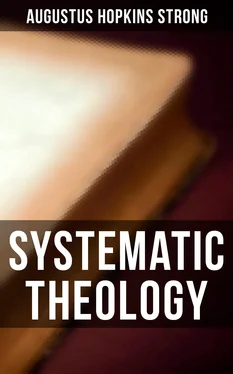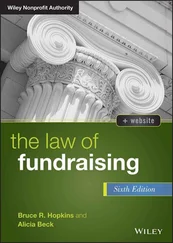(a) Religion is not, as Hegel declared, a kind of knowing; for it would then be only an incomplete form of philosophy, and the measure of knowledge in each case would be the measure of piety.
In a system of idealistic pantheism, like that of Hegel, God is the subject of religion as well as its object. Religion is God's knowing of himself through the human consciousness. Hegel did not utterly ignore other elements in religion. “Feeling, intuition, and faith belong to it,” he said, “and mere cognition is one-sided.” Yet he was always looking for the movement of thought in all forms of life; God and the universe were but developments of the primordial idea . “What knowledge is worth knowing,”he asked, “if God is unknowable? To know God is eternal life, and thinking is also true worship.” Hegel's error was in regarding life as a process of thought, rather than in regarding thought as a process of life. Here was the reason for the bitterness between Hegel and Schleiermacher. Hegel rightly considered that feeling must become intelligent before it is truly religious, but he did not recognize the supreme importance of love in a theological system. He gave even less place to the will than he gave to the emotions, and he failed to see that the knowledge of God of which Scripture speaks is a knowing, not of the intellect alone, but of the whole man, including the affectional and voluntary nature.
Goethe: “How can a man come to know himself? Never by thinking, but by doing. Try to do your duty, and you will know at once what you are worth. You cannot play the flute by blowing alone—you must use your fingers.” So we can never come to know God by thinking alone. John 7:17—“If any man willeth to do his will, he will know of the teaching, whether it is of God.” The Gnostics, Stapfer, Henry VIII, all show that there may be much theological knowledge without true religion. Chillingworth's maxim, “The Bible only, the religion of Protestants,” is inadequate and inaccurate; for the Bible, without faith, love, and obedience, may become a fetich and a snare: John 5:39,40—“Ye search the Scriptures, … and ye will not come to me, that ye may have life.” See Sterrett, Studies in Hegel's Philosophy of Religion; Porter, Human Intellect, 59, 60, 412, 525–536, 589, 650; Morell, Hist. Philos., 476, 477; Hamerton, Intel. Life, 214; Bib. Sac., 9:374.
(b) Religion is not, as Schleiermacher held, the mere feeling of dependence; for such feeling of dependence is not religious, unless exercised toward God and accompanied by moral effort.
In German theology, Schleiermacher constitutes the transition from the old rationalism to the evangelical faith. “Like Lazarus, with the grave clothes of a pantheistic philosophy entangling his steps,” yet with a Moravian experience of the life of God in the soul, he based religion upon the inner certainties of Christian feeling. But, as Principal Fairbairn remarks, “Emotion is impotent unless it speaks out of conviction; and where conviction is, there will be emotion which is potent to persuade.” If Christianity is religious feeling alone, then there is no essential difference between it and other religions, for all alike are products of the religious sentiment. But Christianity is distinguished from other religions by its peculiar religious conceptions. Doctrine precedes life, and Christian doctrine, not mere religious feeling, is the cause of Christianity as a distinctive religion. Though faith begins in feeling, moreover, it does not end there. We see the worthlessness of mere feeling in the transient emotions of theatre-goers, and in the occasional phenomena of revivals.
Sabatier, Philos. Relig., 27, adds to Schleiermacher's passive element of dependence , the active element of prayer . Kaftan, Dogmatik, 10—“Schleiermacher regards God as the Source of our being, but forgets that he is also our End .” Fellowship and progress are as important elements in religion as is dependence; and fellowship must come before progress—such fellowship as presupposes pardon and life. Schleiermacher apparently believed in neither a personal God nor his own personal immortality; see his Life and Letters, 2:77–90; Martineau, Study of Religion, 2:357. Charles Hodge compares him to a ladder in a pit—a good thing for those who wish to get out, but not for those who wish to get in. Dorner: “The Moravian brotherhood was his mother; Greece was his nurse.” On Schleiermacher, see Herzog, Realencyclopädie, in voce; Bib. Sac., 1852:375; 1883:534; Liddon, Elements of Religion, lect. I; Ebrard, Dogmatik, 1:14; Julius Müller, Doctrine of Sin, 1:175; Fisher, Supernat. Origin of Christianity, 563–570; Caird, Philos. Religion, 160–186.
(c) Religion is not, as Kant maintained, morality or moral action; for morality is conformity to an abstract law of right, while religion is essentially a relation to a person, from whom the soul receives blessing and to whom it surrenders itself in love and obedience.
Kant, Kritik der praktischen Vernunft, Beschluss: “I know of but two beautiful things, the starry heavens above my head, and the sense of duty within my heart.”But the mere sense of duty often distresses. We object to the word “obey” as the imperative of religion, because (1) it makes religion a matter of the will only; (2) will presupposes affection; (3) love is not subject to will; (4) it makes God all law, and no grace; (5) it makes the Christian a servant only, not a friend; cf. John 15:15—“No longer do I call you servants … but I have called you friends” —a relation not of service but of love (Westcott, Bib. Com., in loco). The voice that speaks is the voice of love, rather than the voice of law. We object also to Matthew Arnold's definition: “Religion is ethics heightened, enkindled, lit up by feeling; morality touched with emotion.” This leaves out of view the receptive element in religion, as well as its relation to a personal God. A truer statement would be that religion is morality toward God, as morality is religion toward man. Bowne, Philos. of Theism, 251—“Morality that goes beyond mere conscientiousness must have recourse to religion”; see Lotze, Philos. of Religion, 128–142. Goethe: “Unqualified activity, of whatever kind, leads at last to bankruptcy”; see also Pfleiderer, Philos. Religion, 1:65–69; Shedd, Sermons to the Natural Man, 244–246; Liddon, Elements of Religion, 19.
Religion in its essential idea is a life in God, a life lived in recognition of God, in communion with God, and under control of the indwelling Spirit of God. Since it is a life, it cannot be described as consisting solely in the exercise of any one of the powers of intellect, affection, or will. As physical life involves the unity and coöperation of all the organs of the body, so religion, or spiritual life, involves the united working of all the powers of the soul. To feeling, however, we must assign the logical priority, since holy affection toward God, imparted in regeneration, is the condition of truly knowing God and of truly serving him.
See Godet, on the Ultimate Design of Man—“God in man, and man in God”—in Princeton Rev., Nov. 1880; Pfleiderer, Die Religion, 5–79, and Religionsphilosophie, 255—Religion is “Sache des ganzen Geisteslebens”: Crane, Religion of To-morrow, 4—“Religion is the personal influence of the immanent God”; Sterrett, Reason and Authority in Religion, 31, 32—“Religion is the reciprocal relation or communion of God and man, involving (1) revelation, (2) faith”; Dr. J. W. A. Stewart: “Religion is fellowship with God”; Pascal: “Piety is God sensible to the heart”; Ritschl, Justif. and Reconcil., 13—“Christianity is an ellipse with two foci—Christ as Redeemer and Christ as King, Christ for us and Christ in us, redemption and morality, religion and ethics”; Kaftan, Dogmatik, 8—“The Christian religion is (1) the kingdom of God as a goal above the world, to be attained by moral development here, and (2) reconciliation with God permitting attainment of this goal in spite of our sins. Christian theology once grounded itself in man's natural knowledge of God; we now start with religion, i.e., that Christian knowledge of God which we call faith.”
Читать дальше












